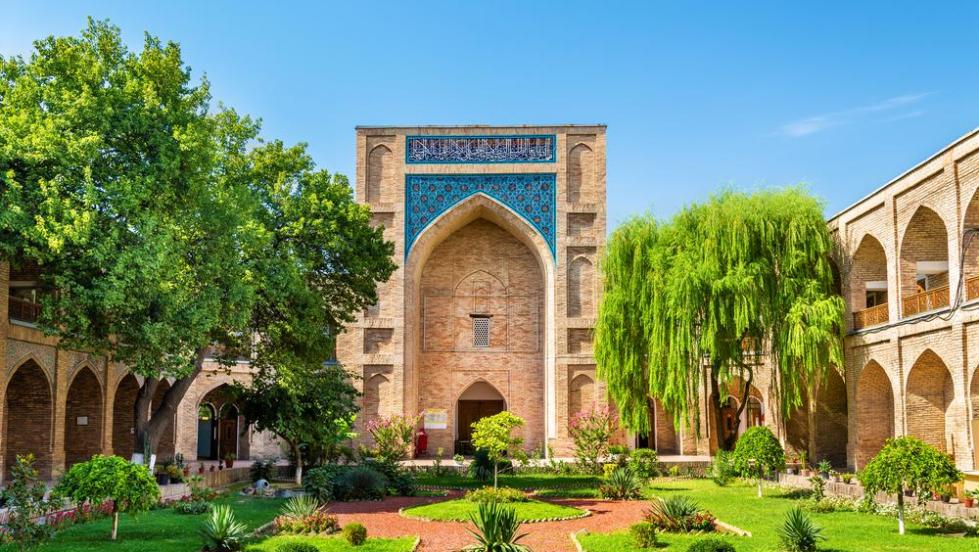About Uzbekistan
Uzbekistan is a Central Asian nation and former Soviet republic. It's known for its mosques, mausoleums and other sites linked to the Silk Road, the ancient trade route between China and the Mediterranean. Samarkand, a major city on the route, contains a landmark of Islamic architecture: the Registan, a plaza bordered by 3 ornate, mosaic-covered religious schools dating to the 15th and 17th centuries. Uzbekistan is a dry, landlocked country. It is one of two doubly landlocked countries in the world (that is, a country completely surrounded by landlocked countries), the other being Liechtenstein. In addition, due to its location within a series of endorheic basins, none of its rivers lead to the sea. Less than 10% of its territory is intensively cultivated irrigated land in river valleys and oases. The rest is vast desert (Kyzyl Kum) and mountains. The climate in the Republic of Uzbekistan is continental, with little precipitation expected annually (100–200 millimetres, or 3.9–7.9 inches). The average summer high temperature tends to be 40 °C (104 °F), while the average winter low temperature is around −23 °C (−9 °F). Cultural Tourism is the only major product Uzbekistan is providing to visitors since its independence. Samarkand, Bukhara and Khiva are hot spots of tourism. Tourist activities in Uzbekistan range from outdoor activities, such as rock-climbing, to exploration of its rich archeological and religious history.
